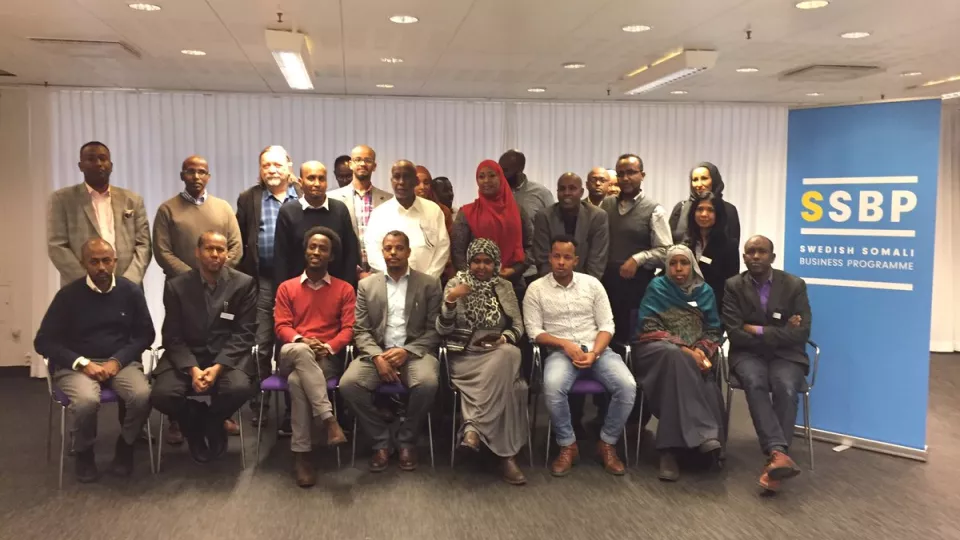This week, Kim Nicholas and Ann Åkerman of LUCSUS, led a workshop on how start-up businesses in Somalia can meet the United Nations Sustainable Development Goals (SDGs), a roadmap agreed by nearly 200 countries for achieving a world of zero poverty, zero hunger, and zero greenhouse gas emissions.
– We wanted to encourage discussion and participation. We brought up relevant issues for Somalia and invited participants to reflect on how their business can meet each individual environmental SDG, says Ann Åkerman.
Participating were 29 Somalian entrepreneurs who are looking to return to the country to set up businesses as it starts to recover from decades of conflict while still facing severe drought. They have been living in Sweden between 6-20 years.
Entrepreneurs were selected for either 3 months or one year of capacity development in the Sweden Somali Business Program. This programme is financed by SIDA, and consists of capacity development for Somali entrepreneurs provided by the NGO ForumSyd (focused on gender and human rights issues) and Business Sweden, a group who promotes international business in Sweden, and Swedish business abroad.
The aims for the start-up businesses are to provide jobs and development in Somalia, in fields ranging from information technology to agriculture to medical and beauty services to water and energy.
At the workshop, Kim and Ann highlighted how natural resources are the basis for sustainable development and focused on discussing the SDGs that have high environmental relevance: food security and sustainable agriculture; water and sanitation; climate action; biodiversity and ecosystems; and ocean and marine resources.
They also showed the film “Human urine as a fertilizer” from LUCSUS’ researcher Elina Andersson’s PhD project in LUCID, and discussed how waste can be treated as a resource. This sparked a discussion on how project ideas can be implemented in practice.
– It is key that they start thinking in real, practical terms: how will my business impact on the environment, and what can I do about it? It was great to see that our session inspired them to start this process in the planning stage of their businesses, says Kim Nicholas.
Applying the SDG:s in the Planning Process
The workshop ended with participants applying the goals for food, energy, water, climate and oceans to their own projects and discussing ways to improve their project’s impact for sustainable development.
One of the participants, a woman, who plans to start a high-quality dentistry practice, started to explore how she will ensure that the water quality in her practice will be of high standard, how she can handle water treatment of chemicals and other pollutions caused by her practice, and how she will safely dispose of hazardous waste she would generate.
– Meeting with the entrepreneurs yesterday gave me great hope for the future of Somalia. Not only are their business plans a step in the right direction to rebuild the country after decades of civil war, but a move to do it following a sustainable pathway, says Kim Nicholas.
